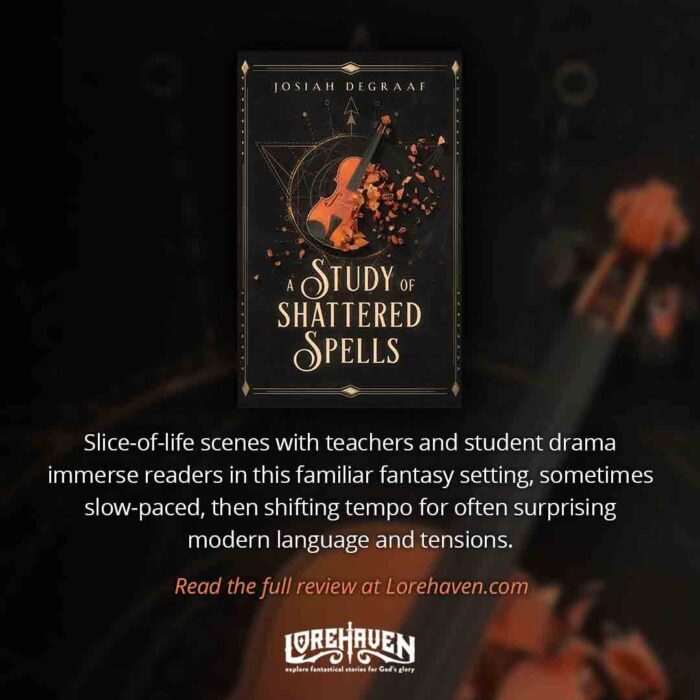Finding Seeds Of Reality In ‘Harry Potter‘
 The newly rebooted webzine Christ and Pop Culture1 explores a topic beloved or infamous to many Christians: the Harry Potter series.
The newly rebooted webzine Christ and Pop Culture1 explores a topic beloved or infamous to many Christians: the Harry Potter series.
Though the last novel released summer 2007 and the last film in summer 2011, fans found more-recent news about the Potterverse, thanks to the new interview between Potter film actress Emma Watson and novelist J.K. Rowling. 2
At CAPC, Marybeth Davis Baggett suggests:
The interview served as a time turner, taking us back and reminding us of how special the Potter series was, how exciting it was for this generation to watch it all unfold.
 This was, and remains, exactly my experience with the “Harry Potter” book and film series. Some may think that exposure to this series will contaminate them spiritually, or lead them to struggle with personal temptations to “real” magic and witchcraft, or real occult movements. We’ve said plenty about that.3 But this fact remains: some readers may have such struggles, but many readers do not. Perhaps you may not actually struggle. You may even find this next true of you:
This was, and remains, exactly my experience with the “Harry Potter” book and film series. Some may think that exposure to this series will contaminate them spiritually, or lead them to struggle with personal temptations to “real” magic and witchcraft, or real occult movements. We’ve said plenty about that.3 But this fact remains: some readers may have such struggles, but many readers do not. Perhaps you may not actually struggle. You may even find this next true of you:
[…] Through delightful engagement with [Rowling’s series], readers are pointed to the ultimate reality, as C. S. Lewis explains in The Screwtape Letters (Chapter 13). Through the voice of Screwtape, Lewis argues that simple pleasure in reading can draw people to God because “[t]he deepest likings and impulses of any man are the raw material, the starting-point” that gets people in touch with reality and directs them toward a homecoming, toward self-recovery—because, as Screwtape acknowledges, that pleasure is “unmistakably real.”
Pleasure and truth, enjoyment and substance, work and play, need not be at odds. If the good, the true, and the beautiful ultimately cohere and form an integrated whole—and they do if the Christian story is true—then that which charms and enchants us, mesmerizes our attention, enthralls and delights us, may well do so because contained within it are seeds of truth.
Read the rest at J.K. Rowling: In Praise of Imagination at Christ and Pop Culture.
- I’m a CAPC feature writer, such as for the recent Doctor Who’s Doctrines series. ↩
- A pre-released interview snippet had Rowling thinking aloud that she had “forced” heroes Ron Weasley and Hermione Granger to become a couple. See Ron and Hermione or Harry and Hermione, Rebecca LuElla Miller, Feb. 10. ↩
- Such as the recent Why I Don’t Shut Up About ‘Harry Potter’, Aug. 22, 2013, or the 2011 series ‘Harry Potter’ and the Issues Beyond Fiction. ↩


































I feel like all I’ve ever been searching for is reality, because my life feels completely artificial, and anything I do to try to be real only results in more artificiality and hypocrisy. But then, I worry that reality might not be worthwhile, that God’s creation might be disappointing compared to nihilistic fantasy.
It always will be, “thanks” entirely to the corrupting invasion of man-caused sin.
But at the resurrection of creation, oh-ho-ho — the sky’s the limit!
(Actually, no, not even the sky is the limit, I’m absolutely sure of that.)
Bainespal,
I hear you, I think. Modern American evangelicalism can indeed seem phony and pretentious if only because it’s been so coddled by American freedom and affluence. Sometimes it can feel to me like my whole spiritual experience is one big put-on. But I don’t believe those feelings when I have them; the idea that as we draw closer to God we become more complete, more whole, more truly ourselves is something that Christians have been exploring for centuries, and it makes perfect sense to my mind. It was a favorite theme of C.S. Lewis, and if you haven’t yet read The Weight of Glory, I highly recommend it. In that vein, you might also be interested in some of my own musings on the subject of human expectations, as influenced by John Piper and others.
Oooh, download. Thanks!